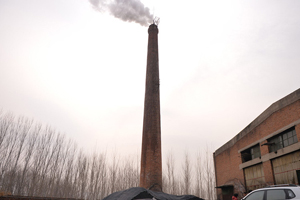The Chinese capital's fine-particulate pollutant intensity is expected to drop to the internationally recognized safe level in 16 years, environmental authorities said.
Pan Tao, head of the Beijing Municipal Research Institute of Environmental Protection, said the concentration of PM2.5 - particulate matter with a diameter of 2.5 micrograms or less per cubic meter - is likely to be reduced regularly to no more than 35 micrograms per cubic meter by 2030.
"Improving air quality in the city is not going to be an easy task," Pan said on Tuesday during the 2014 Beijing International Academic Symposium on Urban Environment.
"It takes time and effort to turn the ship around."
The World Health Organization has said the concentration of PM2.5 should be no greater than 35 micrograms per cubic meter.
Air quality with a higher intensity is considered unhealthy, especially for the old and young, and those with heart and lung problems.
The Beijing Environmental Protection Bureau said that the intensity of PM2.5 in 2013 was 89.5 micrograms per cubic meter - still two and a half times above the standard.
The bureau's recently released plan said the intensity of PM2.5 is to be reduced to 60 micrograms per cubic meter.
The 2017 target is still harmful to people's health, but achieving the goal is challenging, Pan said.
The rapid expansion of Beijing, the population explosion and improper urban planning have hindered environmental improvements, he said.
"The current pollution emission is far beyond the environmental capacity in the city, and any adverse climate condition would easily result in smoggy days," he said.
"The key to current air quality improvement lies in emission reduction."
To ensure that Beijing residents can enjoy cleaner air by 2017, governments in the area have been imposing harsh fines against polluting enterprises to reduce the region's notorious smog.
Many companies, especially those with coal-fired boilers and cement plants, have been fined for excessive smoke exhaust, lacking or having faulty emission-monitoring facilities and leaving coal dumps uncovered in the past few months, the Beijing Environmental Protection Bureau said.
The amount of sulfur dioxide in Beijing's air has been reduced 77 percent since 1998, while nitrogen dioxide has been cut by 30 percent and PM10 by 42 percent, the research institute said.
 |
 |
|
Hebei hopes new lab will help find smog solutions? |
